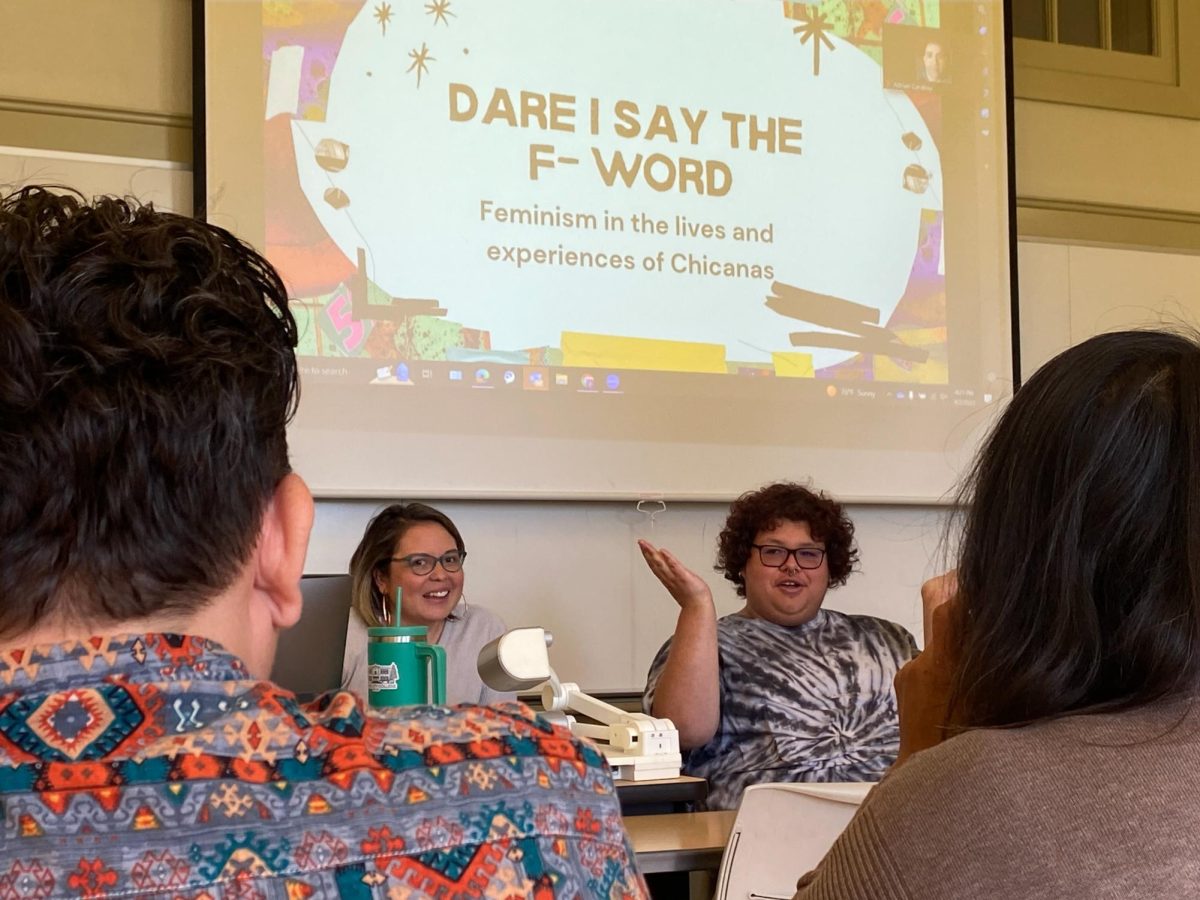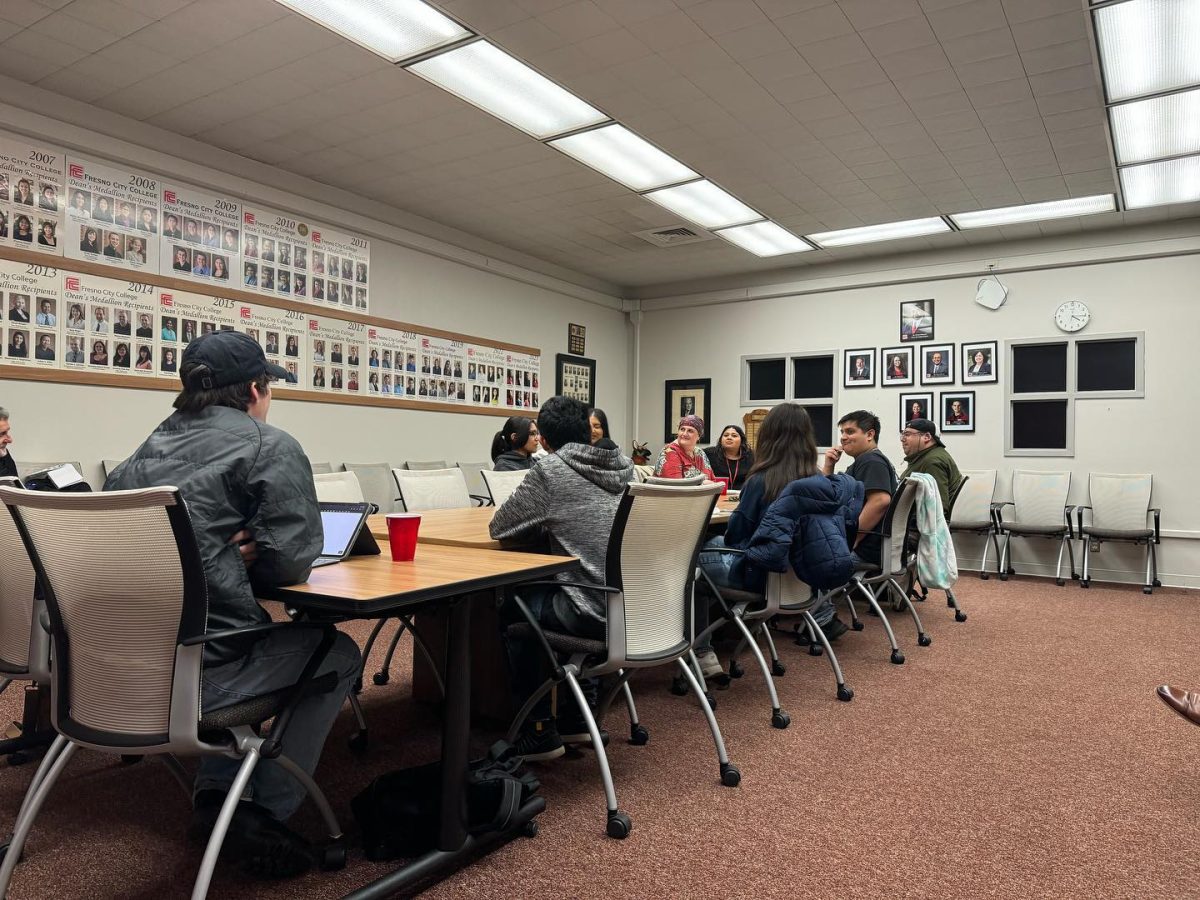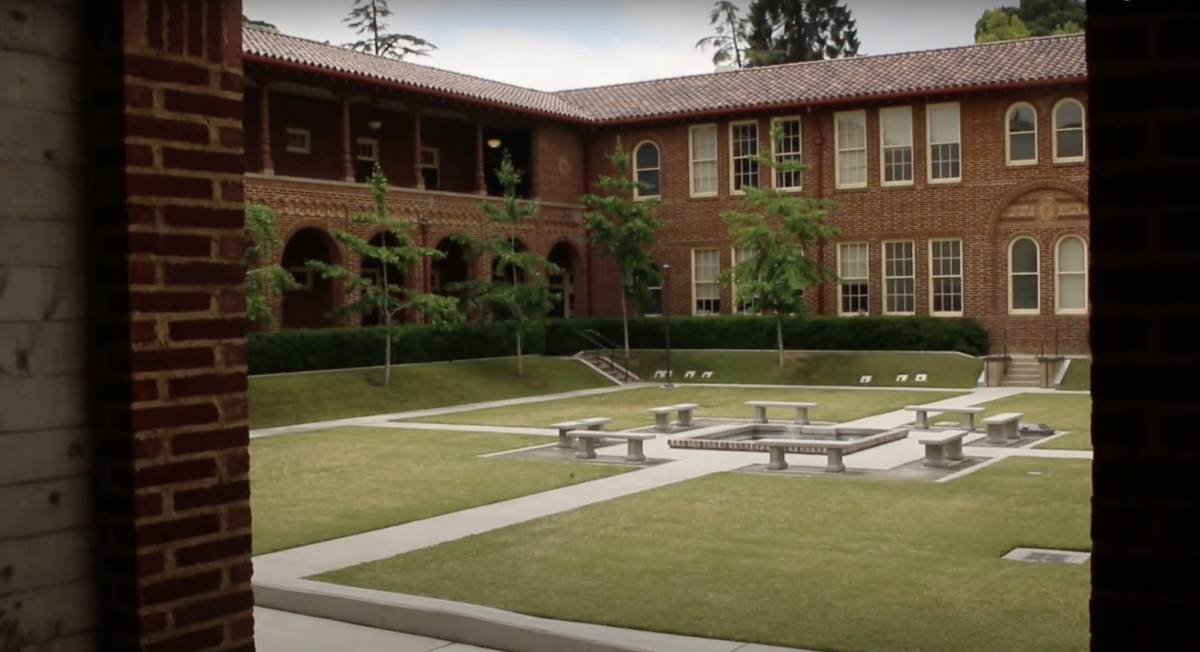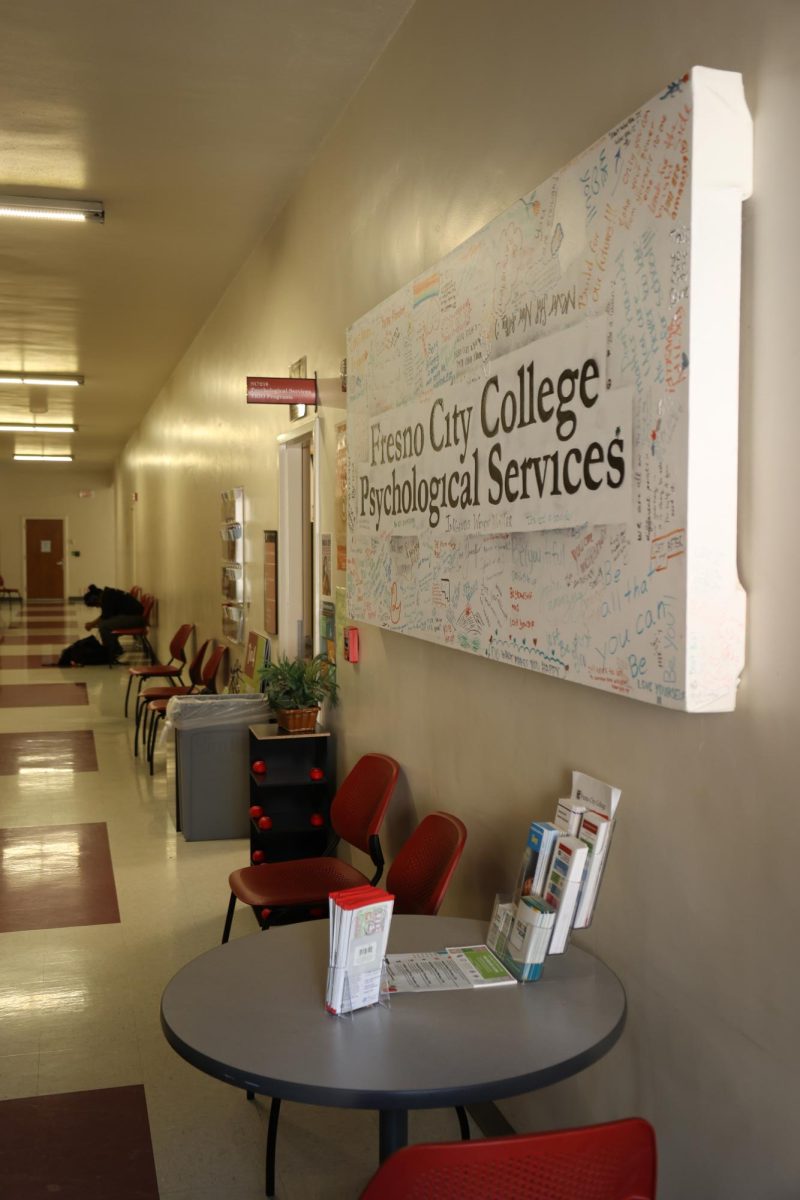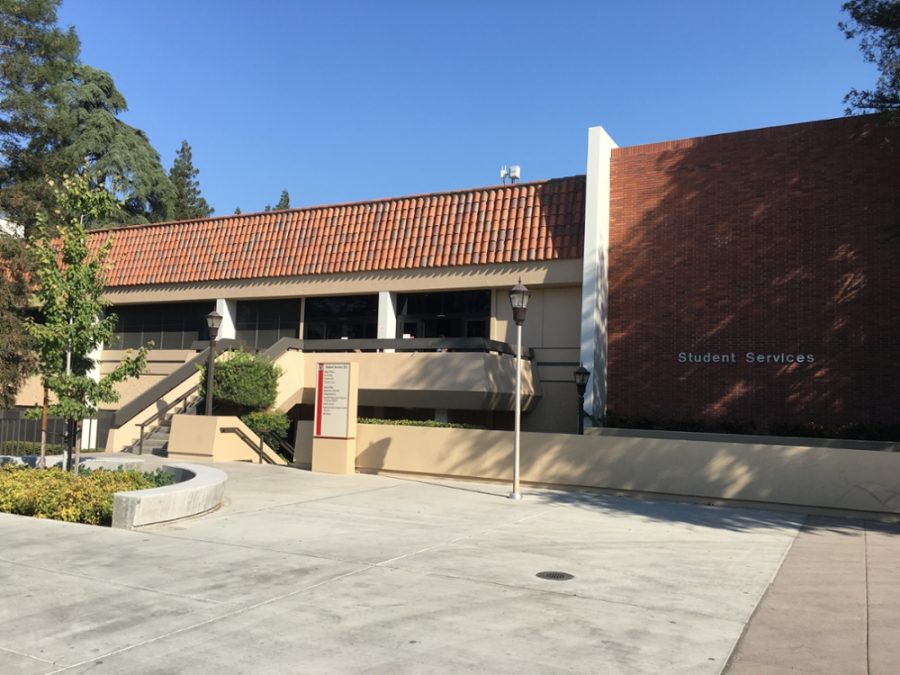When Lori Natal first enrolled at Fresno City College in 1995, she was shy and without much of a plan. She knew she wanted to go to a university but she didn’t know how to do it or if she was even capable.
She came to school each day and attended her classes, but she felt adrift and unconnected to anything at FCC. Then her mother insisted that she sees a counselor. It was after her meeting with a counselor that Natal finally found the missing link in her education.
The counselor suggested that Natal join a campus program known as Puente. She found the route she was looking for. She changed her major from economics to sociology, hoping to fulfill her desire to help others. Before long, she moved on to CSU Fresno where she received her bachelor’s degree in sociology and later her master’s degree in counseling.
Today Natal is leading the Puente program at FCC and is helping students overcome the same struggles she once had.
“Being part of Puente helped me break out of that shell and helped me realize that I could be successful in school,” Natal said.
Established in 1981, Puente is a statewide program helping students transfer to four year universities and colleges. It’s one of many student service supportive programs at assisting minority students close the achievement gap.
Other programs include the Trio program which serves mainly first generation college students, low income or disabled students; Idile which is designed to assist African American students; the Title V Camino program which focuses on Hispanics, and USEAA which was established to accommodate the large number of Southeast Asian students at FCC.
According to information available on the website of State Center Community College District’s Institutional Research, out of 21,147 students attending FCC in the spring of 2012, 1,687 or 8 percent identified themselves as African Americans; 274 or 1 percent are American Indians or Alaskan Natives; at 3,683, Asians make up 17 percent; 9,576 students are identified as Hispanics, the largest group at 45 percent. Twenty four percent or 5,097 students are identified as White or non-Hispanic while 830 or 5 percent report no racial affiliation.
The 2011-2012 State Center Community College District fact sheet also reports that minority groups at FCC have a significantly lower success rate than white students. In the 2012 spring semester for example, the successful completion rate data showed African Americans at 55 percent, Latinos at 64 percent, Asians at 70 percent and whites at 75 percent.
The trend remains true in several other categories including retention rate, transfer rate and GPA. Whites lead in all categories while African Americans remain last across the board. The 2012 district data showed African Americans recorded a GPA of 1.98 while Hispanics recorded 2.21, American Indians 2.25; Asians 2.39 and whites 2.72.
Through counseling, study groups, time management development and campus tours, programs such as Puente are working towards bringing success to students of all backgrounds.
“A lot of our community college students are underrepresented. They are from the Chicano Latino group, African American group, or Southeast Asian [group],” said Title V program coordinator, Leticia Canales. “A lot of students have to work and they have family obligations. Some have a hard time just getting to school. Some come from across town.”
Canales also said that there are two different groups of students that come to community college. Some students come to college having finished their high school requirements. They come to community college because of the cheap cost or to stay close to home. Other students may come to college without finishing their high school requirements.
Not all students want to transfer; instead they want to have some kind of degree like an Associate’s degree. The Associate’s degree at FCC requires a higher level English or Math to graduate. Students who start at lower level courses find themselves fighting for seats.
“They’re all competing for the same seats. There are a lot of students at developmental reading, writing and math. It may take them two or three semesters to get to English 1A,” said Canales.
As coordinator of the Title V Camino Program, Canales helps students accelerate their academic course. The program includes a learning community of students that enroll together in a six-week Summer Bridge program. Students are also provided with a structured first year experience supported by program counselors and peer mentors. Although the program is geared towards assisting Hispanics, students of all backgrounds are welcome.
Another student service program, Idile, is designed mainly to support African American students. The program was initially established by retired FCC counselor Walter Brooks to help African Americans. It was eventually expanded to assist more students. In 1989, the program was institutionalized at FCC.
After taking charge of Idile last year, Granville Redmond saw an increase in the success rate with 10 out of 29 students making the Dean’s list. Still Redmond is concerned by the trends he is seeing from students in all ethnicities.
“Not only are African Americans behind, but a large number of students, no matter their ethnicities, are behind,” said Redmond. “It starts at a young age. Students are not scoring high on the (Adequate Yearly Progress) tests. Their skill level is far below basic.”
Idile focuses on getting students through the English requirements. “There is an alarming number of students in Fresno who don’t qualify for English 125 and 126,” said Redmond.
There is also a cultural component in Idile which gives students an opportunity to visit African American museums, universities, and other cities. Even in the midst of a budget crisis, Idile is focused on giving students campus tours so they have a better idea of where they would like to transfer.
“A lot of people have not had the experience of leaving Fresno. They have not even been to San Francisco or (Los Angeles),” said Redmond. “Idile is trying to provide the missing links to make students successful. We’re learning as a family. We provide study groups and mentors.”
Trio program coordinator, Rosa Murillo, says lack of one motivation is one of the key factors plaguing students today.
“A lot of the things I see are a lack of motivation among our students. And this is across the board. Not just our minority students. They come here and they don’t know what they don’t know,” said Murillo. “The reason we have a high dropout rate is because students [give up]. When they get stuck, they quit.”
The goal of Trio is to serve as a one stop place so students don’t have to go out of their way to get help. Academic counseling, financial information, campus tours, letters of recommendation, priority registration and personal issues are a few of the things the program can address.
“We teach them to be independent, to be problem solvers and critical thinkers. When they have a problem, I teach them to deal with it rather than run away from it,” Murillo said. “They come in and panic and I give them options. When they transfer they know how to deal with issues.”
So far the Trio program has not been affected by the budget crisis because it is federally funded. But Murillo worries the program could be affected next year if there are more budget cuts across the district.
Lyn Scott is one of Trio’s success stories so far. Scott arrived at Fresno City College without a clear goal. But when he heard about the Trio program, he immediately joined and was able to transfer in two years. He is now at San Diego State studying aerospace engineering.
“(Murillo) was always there and very encouraging. In life things happen, and she was always there to help me with anything,” said Scott.
Current FCC student Jamal Garrett has also been a beneficiary of the Trio program.
“The counselors are always there to make sure we are on task. They lead us to references and they show us how to do it if we don’t know how to do it,” said Garrett. “Just the culture, the atmosphere of the program is helpful. They give us workshops for stress relief. It’s an outlet for a lot of things.”




